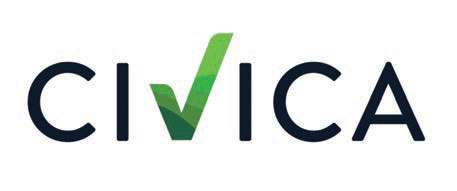Civica Rx, the nonprofit corporation founded in Salt Lake City last year with the stated goal of reducing chronic generic drug shortages in the U.S., and Hikma Pharmaceuticals PLC, a multinational generic pharmaceutical company based in London, have announced a five-year agreement that calls for Hikma to produce 14 drugs to supply Civica’s growing membership.
Although names of the actual drugs to be produced will not be announced for several weeks, the companies said that they include 14 essential sterile injectable medications used daily by hospitals in emergency care, surgery, pain management and in treating hypertension. The medications will carry Civica’s private label and will use Hikma’s Abbreviated New Drug Applications (ANDAs) and Civica’s labeling and National Drug Code (NDC).
The 14 drugs are in addition to two medications Civica has announced it will purchase from Copenhagen-based Xellia Pharmaceuticals. Those drugs are the broad-spectrum antibiotics vancomycin and daptomycin, Civica said in May. All of the medications are expected to be available for distribution to Civica members before the end of the year with the antibiotics available as soon as the end of the summer.
Civica was announced in January 2018 by leading U.S. hospital systems concerned about generic drug shortages and philanthropic organizations passionate about improving healthcare. Salt Lake City’s Intermountain Healthcare was a leader in the formation of Civica in association with hospitals and medical providers across the United States. Intermountain’s Dan Liljenquist is the company’s chairman of the board. Civica opened its national headquarters in Lehi in April. The University of Utah’s health system is a partner member of Civica. To date, more than 30 health systems are Civica members, representing more than 900 hospitals and approximately 30 percent of all licensed U.S. hospital beds.
Hikma is the third-largest U.S. supplier of generic injectable medicines, with a growing portfolio of more than 100 injectable products. Today, one in every six generic injectable medicines used in U.S. hospitals is a Hikma product. During the past three years, Hikma has launched more than 20 medications into U.S. shortage situations and in 2016 the company received a Drug Shortage Assistance Award from the U.S. Food and Drug Administration (FDA) for its role in preventing or alleviating drug shortages. Hikma has manufacturing and sales facilities throughout the United States, the Middle East, Europe and North Africa. It employs 8,400 worldwide.
“Hikma is thrilled to be partnering with Civica to reduce drug shortages and we share their commitment to providing hospitals and doctors with a steady and reliable supply of high-quality injectable medicines needed for successful patient care,” said Daniel Motto, Hikma’s executive vice president of commercial and business development. “This agreement recognizes both our ability to deliver a large and consistent supply of quality medicines and the significant investments we have made to expand our injectable manufacturing capacity and capabilities.”
“We applaud Hikma’s clear commitment to reducing drug shortages,” said Martin VanTrieste, president and CEO of Civica Rx. “Our partnership will help us make an impact as quickly as possible. We specifically chose Hikma because of their strong manufacturing capabilities and believe their excellent quality and supply record will be key to our success in ensuring vital medications are consistently available for hospitals and patients who need them.”
Civica was established as non-stock corporation and its membership includes a governing board and founding and partnering members. It will establish long-term contracts with health system members as well as its manufacturing partners in order to assure fair and sustainable prices to its member hospitals. It will seek to ensure it has dedicated manufacturing capacity for the medications that are most needed in hospitals across the country through redundant manufacturing and strategic stockpiling of medications to prevent drug shortages in the future, the company said. It will specifically focus on a supply of antibiotics, anesthetics, cardiac medications, pain management medications and other essential sterile injectable medicines used in hospitals daily. The organization hopes to eventually establish its own manufacturing facilities.








